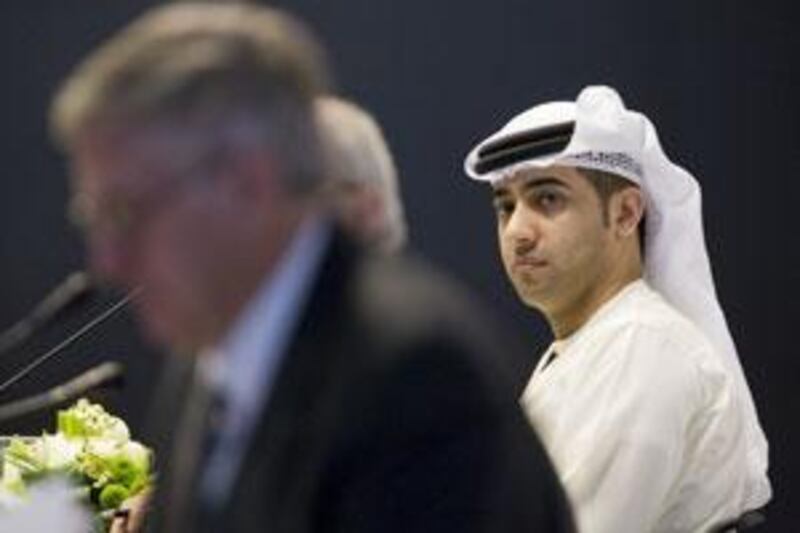The world's top nuclear body is in "the final stages" of an agreement to create a nuclear fuel bank for the UAE and other emerging nuclear states that would rely on imported uranium for their reactors. The creation of a fuel bank administered by the International Atomic Energy Agency (IAEA) has been supported by the Government, which gave up its right under international law to enrich its own uranium.
The IAEA last week discussed a final signing date with the Russian government to procure 120 tonnes of low-enriched uranium for one fuel bank, said Yury Sokolov, the deputy director general of the IAEA. The agreement is separate from another proposed fuel bank, also administered by the IAEA, that has been supported by donations from a number of countries including the UAE, he said. "After the signature, it will take about six months for it to be fully established," Mr Sokolov said yesterday in Abu Dhabi.
"Russia will deliver the amount of fuel to the port, and at that moment it will become the agency's. The agency will make other arrangements to take this fuel to fuel fabrication [plants]." The uranium could be turned into fuel for any type of reactor, he said. Russian officials told the country's news agency, RIA Novost, earlier this month that they hoped to deliver the fuel to the IAEA by the end of this year.
The UAE welcomed the establishment of international fuel reserves as an assurance against disruptions to its fuel supply chain, said Hamad al Kaabi, the UAE's permanent representative to the IAEA. "What it does basically is it does not interfere with the market but at the same time it adds an extra layer of protection in case a disruption happens for political reasons, or reasons beyond the commercial," he said.
In August 2008, the UAE donated US$10 million (Dh36.7m) to the formation of the separate multinational fuel bank, which has also been supported by Kuwait, the US, the EU and Norway. In December, the Emirates Nuclear Energy Corporation (ENEC) awarded a $20 billion contract to a consortium of South Korean firms to construct four reactors in the UAE, each with a capacity to generate 1,400 megawatts of electricity. The plants would come complete with an initial supply of fuel, but ENEC would have a choice of continuing to buy processed uranium from the Korean firms or turning to other suppliers.
French and American firms have also expressed interest in supplying fuel to the UAE. The Government was satisfied with relying on the international market in the immediate term, Mr al Kaabi said. "We believe the international market today provides a sufficient assurance for supplies for our reactors, however we are also pursuing further strategies to insure against any disruption to our fuel supplies in the future," he said.
Nuclear officials from across the world were gathered in Abu Dhabi yesterday for a conference on skills shortages in the global nuclear industry that was convened by the IAEA. As concerns increase about climate change and the future availability of fossil fuels, the number of nuclear reactors worldwide could increase sharply, stretching the pool of skilled labour in the industry, said David Torgerson, the emeritus adviser to Atomic Energy of Canada.
"We could have as much as a 75 per cent increase in the global nuclear capacity," he said. "It's not a big stretch of the imagination to say by the end of the century we will have thousands of plants operating, as opposed to hundreds." @Email:cstanton@thenational.ae





